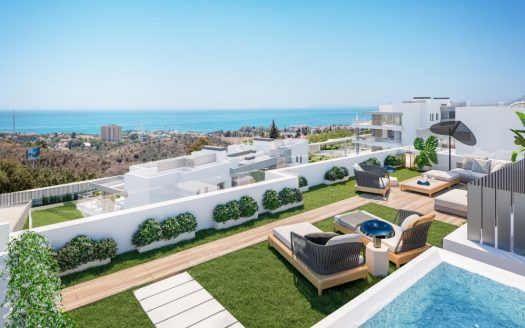Property Buying Costs in Spain 2022

It’s a fairly boring subject but one that must be addressed, we are here to help you from the initial excitement of exploring areas to live in, to viewing the perfect property for your holiday home, relocation or retirement. The Spanish property purchase process can be daunting, it also varies between countries, and is likely to be different in some way dependant on where you are from. As well as the price of the property, you will also need to factor in other costs and expenses, such as property tax in Spain and additional mortgage fees. If you’re planning on buying a house in Spain, below we will look at the taxes and fees for 2022.
If you intend to use a mortgage to purchase your home, Spanish banks will allow you to borrow 80% against the value of the property if you intend for it to be your main residence, if it is not to be used as a main residence the banks will lend 70% against the value of the property.
Dependant on the location of your property (some tax rates vary by location), the costs of property valuation, legal and notary fees, land registry and the corresponding taxes, it is recommend having additional savings of between 12% and 14%. These percentages are on top of the 20% or 30% you need for the mortgage deposit. These additional fees are payable in all cases. The total amount to be paid will depend on whether you are buying new or a resale property, where you are buying the property and the price of the property.

Here is a summary of what each one consists of and the approximate price/value in 2022;
The notary
When buying a house in Spain, both new or pre-owned you must use a Notary. Notaries in Spain do the job that a solicitor usually does when you buy a house in the UK. Their fees are regulated by the State, therefore they all charge the same for identical services. In the case of granting the public deed of sale, prices are usually between €600 and €875, but depend on the price of the property. For example, for a €100,000 apartment you would pay approximately €850, while for a €250,000 apartment, you would have to pay around €1,000.
The Land Registry
There is also a fee to register the deeds that have been signed by the notary. These fees are fixed by and depend on the purchase price of the property, they are usually between €400 and €700.
Taxes
The buyer of a home must also pay Spanish taxes, although the amount will depend on the price of the home and whether it is new or pre-owned.
If you purchase.a new home then you will pay more taxes. This is because new-build homes are subject to VAT (IVA in Spanish). In 2022, VAT will amount to 10% of the property price. In other words, you would need to save up an additonal €10,000 in the case of a €100,000 home and €25,000 in a €250,000 home. Please note his tax is lower in the Canary Islands: VAT on buying a house is only 6.5% (this is the IGIC-Indirect General Canary Islands Tax). In the case of public housing, VAT may be 4%, but this varies depending on the Autonomous Community and the type of social housing in question.
A second tax is also added to the VAT when buying a new home in Spain: the Documented Legal Acts tax (IAJD, also often known simply as AJD). This tax is paid by the purchaser and the amount depends on each Autonomous Community. These taxes do not apply to resale homes.
Taxes to be paid when buying a new home in Spain
| Autonomous Community | AJD | VAT |
| Andalucía | 1.2% | 10.0% |
| Aragón | 1.5% | 10.0% |
| Asturias | 1.2% | 10.0% |
| The Balearic Islands | 1.2% | 10.0% |
| The Canary Islands | 0.4% | 6.5% |
| Cantabria | 1.5% | 10.0% |
| Castile-La Mancha | 1.5% | 10.0% |
| Castile and Leon | 1.5% | 10.0% |
| Catalonia | 1.5% | 10.0% |
| Ceuta | 0.5% | 10.0% |
| Madrid | 0.75% | 10.0% |
| Valencia | 1.5% | 10.0% |
| Extremadura | 1.5% | 10.0% |
| Galicia | 1.5% | 10.0% |
| La Rioja | 1.0% | 10.0% |
| Melilla | 0.5% | 10.0% |
| Murcia | 1.5% | 10.0% |
| Navarre | 0.5% | 10.0% |
| The Basque Country | 0.0% | 10.0% |
For pre-owned (re-sale) homes, the most important tax to keep in mind is the Property Transfer Tax (ITP). The amount depends on the percentage applied to the registered price and the autonomous community in which the house is located, as a general rule a rate of between 6% and 10% is applied. The following rates are to be applied in 2022:
Taxes to be paid when buying a pre-owned home in Spain
| Autonomous Community | ITP |
| Andalucía | 7.0% |
| Aragón | 8.0% |
| Asturias | 8.0% |
| The Balearic Islands | 8,0% |
| The Canary Islands | 6.5% |
| Cantabria | 10.0% |
| Castile-La Mancha | 9.0% |
| Castile and Leon | 8.0% |
| Catalonia | 10.0% |
| Ceuta | 6.0% |
| Madrid | 6.0% |
| Valencia | 10.0% |
| Extremadura | 8.0% |
| Galicia | 10.0% |
| La Rioja | 7.0% |
| Melilla | 6.0% |
| Murcia | 8.0% |
| Navarre | 6.0% |
| The Basque Country | 4.0% |
For VPOs in Spain (Spanish subsidised housing), for large families, people with disabilities and for young people there are often lower rates. For example, in Madrid, large families who buy an independent property will pay 4% of the registered price as a tax on the property, provided that the home they buy is their main residence.
A Legal adviser
Most people who purchase a property in Spain will employ a legal advisor to guide them and ensure all the correct paperwork is in place. The cost does vary depending on the cost of the property being purchased, but 1% of the value is the usual cost. We recommend UK buyers check the UK government website which recommends registered independent lawyers. You should never use the same legal advisor as that of the seller or developer.
The only optional expense of buying a home is using a “gestor”, someone who will process any tax settlements and complete other paperwork. Hiring an adviser like this may be particularly useful for those who don’t speak Spanish. They don’t have specific fees, and they are usually only contracted when a mortgage is opened to purchase the property with an approximate cost of €300.
Additional mortgage costs in Spain
The above taxes and fees are applicable whether you need to take out a mortgage or not. If you plan to purchase a property in Spain by taking out a mortgage, then be aware that there may be additional charges. Mortgage costs may differ depending on whether the applicant is a resident or not.
The valuation of the property
when a buyer is to apply for a mortgage, they will have to pay a surveyor to value the property. This is often organised by the bank to allow the bank to calculate what percentage of financing it can provide.
The valuation costs are between €250 and €600 depending on the type of property. Some, but not all, banks will cover these costs. Once the valuation is complete, it is valid for 6 months from the date of issue.
In order to take out certain mortgages, banks may require you to take out home or life insurance as a condition of the loan.
It is always worth checking the latest information with your appointed Lawyer or property agent to ensure you have fully up to date information.








